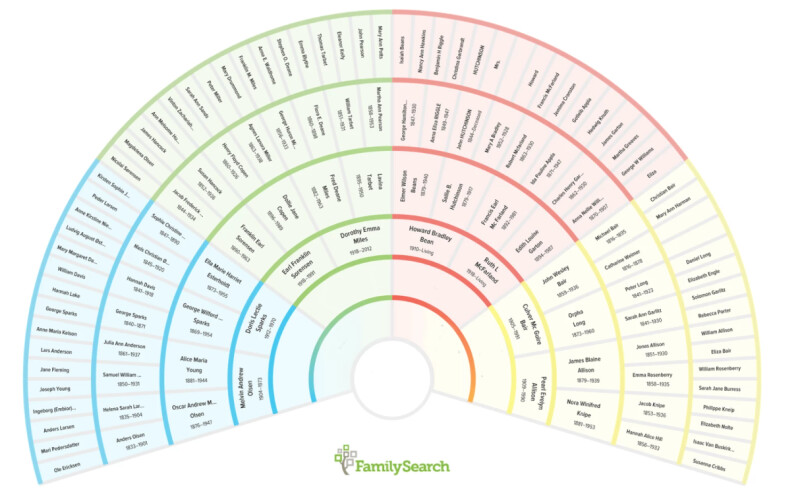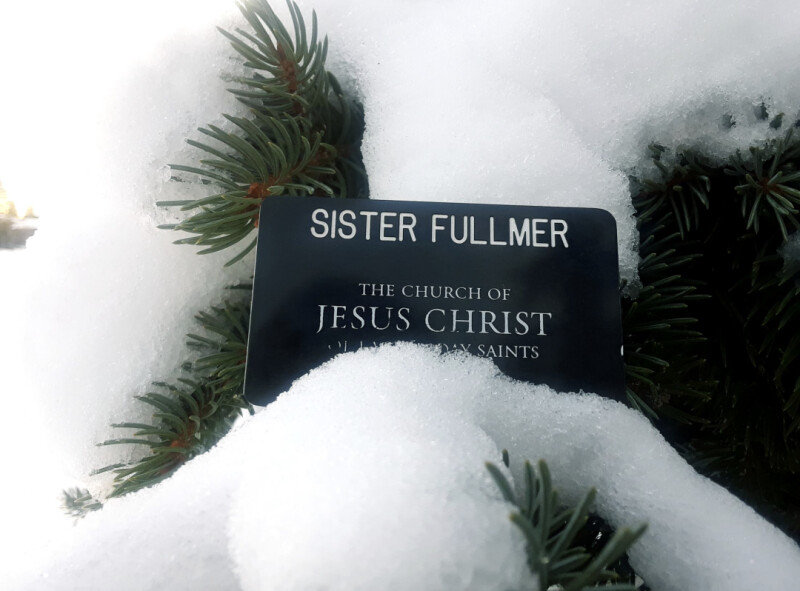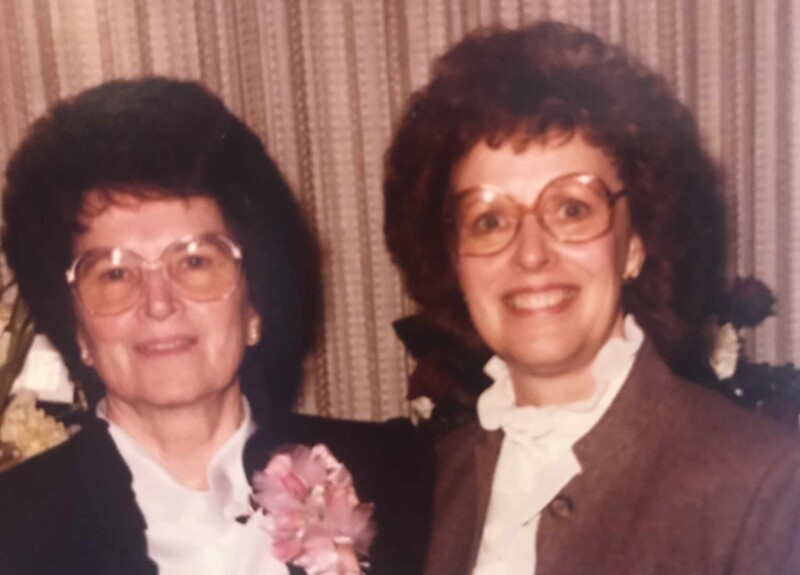For as long as I’d been able to sing Primary songs and tell Book of Mormon stories, I yearned to be a missionary. I saw missionaries as superheroes with name tags. I thought my youthful passion for sharing the gospel would be enough to carry me to the doorstep of anyone and everyone in the world, scriptures in hand, bold eloquence spilling from my lips!
Then I got older. Life got harder.
Like so many members of my generation, I watched as the relentless tempests of a modern world heaved that childhood confidence overboard. What washed up on the shore was a hopelessly brittle heap of anxiety—remnants of self-assurance that I would struggle to rekindle throughout my teenage and adult life.
Naturally, this made it incredibly difficult to approach strangers in a foreign country and share my beliefs with them, and even more difficult to adhere to schedules and expectations that only the most extroverted, self-assured missionaries seemed capable of achieving.
My situation is not unique. Almost everyone I know can relate to the battles of mental health in one way or another. I’m a firm believer that the importance of medication and professional help cannot be overstated. Help is needed and help is available.
I’ve also become a firm believer in an additional remedy, a gentle power that carried me through my missionary service in ways I’d never dreamed possible: family history.
The Middle of the Tree
“Our Father’s plan is about families, symbolized by a great tree. For a tree to live and grow, it needs both roots and branches. We likewise need to be connected to our roots.” —Elder Quentin L. Cook
After receiving my mission call to serve in Canada, I described to my dad my immense feelings of excitement inextricably mixed with anxiety and inadequacy. I knew what kind of missionary I hoped to be, but already felt daunted by the obstacles I would have to overcome within myself.
He pointed to the framed fan chart that was hanging on the wall of our living room, a depiction of our family history. “See this?” he said, “You’re right here.” He put his finger directly on the center. “The middle of the tree. And someday your kids will be. Then their kids. Then their kids.”

I envisioned an ever-strengthening tree, its trunk wound with the layered rings of each generation. In a world that felt unendingly threatening, I could count on that sturdy tree.
I printed a fan chart of my own and took it with me on my mission. Everywhere I went, it was a visual reminder of my location in a sea of souls; I stood at the heart of an impenetrable, eternal circle.
The Names of Your Angels
“For I will go before your face. I will be on your right hand and on your left, and my Spirit shall be in your hearts, and mine angels round about you, to bear you up.” —Doctrine and Covenants 84:88
One rainy afternoon in January, my companion and I were studying in the lobby of the chapel. Besides two freezing missionaries, the Church building was empty. We talked about how the frigid weather, long days, and oppressively grey skies often made it difficult to stay focused on the light of our message.
I mentioned to my companion that I liked to imagine angels walking with us, even though I’d never seen or felt them. The idea came from the fan chart I’d printed. It hung by my study desk, where I could stare at the names and imagine the fan extending on and on. I imagined that if any angels were sent to help missionaries, they were probably the ones related to us.
For the first time in weeks, I suddenly felt warm and hopeful. My companion said, “Did you feel that?”
“I think so,” I said. “…Feel what?”
She paused. “While you were talking, I saw this sort of light gathering around you. Like a bunch of people who loved you. I could feel that they really loved you. And there were so many of them.”
We sat in reverent silence for a moment. Though I’d never seen or felt spiritual things quite as strongly as my companion did, I believed her. I held on to that hopeful feeling I’d glimpsed. For the next few weeks, it fueled me with warmth and courage as we tracted those icy streets.

I also felt a sudden urgency to learn about my ancestors. If angels really were among us, I wanted to know more than what their names might be. Who were they? What were their stories?
The Blessings that Bind Us
“If you learn stories about their lives, write them down and keep them. You are not just gathering names. Those you never met in life will become friends you love. Your heart will be bound to theirs forever.” —President Henry B. Eyring
Eager to learn more, I spent our next preparation day on FamilySearch.com and the Church website. I reviewed the names and stories of my ancestors, and documents my relatives had uploaded—tangible things I could remember when I wanted to imagine my angels.
I also discovered that, as a direct relative, I could request PDF copies of my ancestors’ patriarchal blessings. I downloaded and printed the blessings of my great-grandmothers and great-great-grandmothers on both sides of the family.
These stalwart, resolute women embodied the calm faith I so desperately ached to have myself. They didn’t seem anxious or shy—not in their resolute, black-and-white portraits. If anything could tell me more about where I came from and who my angels were, it would be their recorded promises and instructions from the Lord.
I read their blessings. At first, I was disappointed. No ground-breaking revelation. No hidden messages. They were surprisingly similar to my own.
Then I realized: They were surprisingly similar to my own.
The same gentle guidance and encouragement that the Lord had for the women I admired, He had for me.
Studying my own patriarchal blessing with renewed intent, I realized that, though personal, my inner battles were not unique. The light I sought was the same as the light my great-grandmothers and their mothers had sought. Bound together by our blessings and instructions from the Lord, we were connected to each other in our likeness, in our earnest search for the Savior and for good in the world.
The Gifts We Share
“When our hearts turn to our ancestors, something changes inside us. We feel part of something greater than ourselves.” —Russell M. Nelson
The more I learned about these women, the more I could relate to them.
Early in my mission, I felt awkward when I tried to share my beliefs with strangers on the street. I felt inadequate when I tried to serve the people in our town. I felt alone and detached when I interacted with other missionaries. In almost every way, I felt that I had little to offer—except for one thing: music.
I come from a long line of musically talented women—women who could sing, play piano, and compose arrangements as effortlessly as they breathed and as beautifully as they lived. They passed on their love for music, burying it deep in my bones. These were women of God, full of confidence in Him that often only found adequate expression in the wordless, limitless reach of music. Playing piano made me feel close to them.

My skills pale in comparison, but aspiring to be like them, I played piano. Everywhere and every chance I could.
From retirement centers and the homes of lonely widows to chapels and gymnasiums, I played. I wasn’t eloquent or extroverted, but my soul was still full of childlike zeal for the gospel of Jesus Christ. I couldn’t boldly testify in chapels and town halls, but I could fill them with music. Many people thanked me, telling me that my piano playing helped them feel the Spirit, feel more hopeful, and feel less alone. It did the same for me.
The Power of Seeing Yourself in Context
“Meaningful growth occurs going backward and forward through the generations as sealing ordinances weld families together.” – Elder Dale G. Renlund
When you learn the names and stories of your angels, it changes your life. They’re not perfect people; they’re more like us than we realize. That’s why they’re so good at cheering us on. That’s why our relationships with them matter so much.
Like the love of the living, the love of the deceased is a balm to our hearts—all through the sealing, healing power that is gifted to us through the Savior Jesus Christ. His Resurrection and binding power give each of those relationships eternal significance, now and forever.
I returned home from my mission, continuing to face the battle of anxiety in ever-changing ways. Many days I still feel overwhelmed with darkness and fear. But the connections I’ve made with my ancestors have remained a source of strength. They fill me with an otherworldly power I haven’t felt from doing anything else.

I did not become fearless, but I have never stood so tall as when I became sure of who I am and the immense circle of love I stand within.
To anyone who struggles to feel brave, hopeful, or worthy: Search for strength in your family story. It won’t make all your problems go away; instead, it will give them empowering, ennobling context. The veil is thinner than we often realize. Behind it, there’s a never-ending reservoir of love, ready and waiting to buoy and anchor you against even the fiercest storms.
▶ You may also like: Full-circle blessings: How a father found the Mustang he sold to serve a mission


